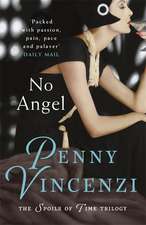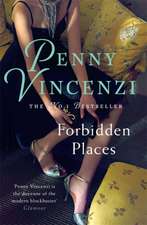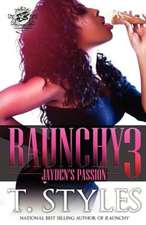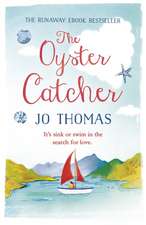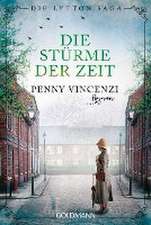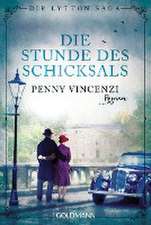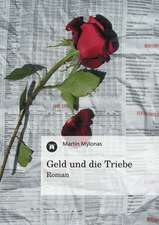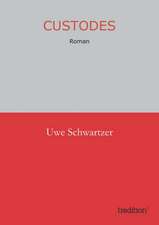Sheer Abandon
Autor Penny Vincenzien Limba Engleză Paperback – 31 mar 2008
Martha, Clio, and Jocasta meet by chance at Heathrow airport in 1985 as they are starting off on separate backpacking adventures, and they decide to spend the first few days of their trips together in Thailand. When they go their separate ways, they vow to get together in London the following year. But many years pass before the three cross paths again, and the once-capricious, carefree girls now all have thriving careers. One of them, however, harbors a terrible secret: On her return from her pre-college excursion, she abandoned her just-born daughter at Heathrow.
Clio has fulfilled her ambition of becoming a doctor, only to find herself trapped in a marriage to an arrogant surgeon who belittles her and her professional achievements. Martha is a highly paid corporate lawyer, just embarking on a political career. Dedicated to her job, she has had little time for personal relationships and lives a busy, but lonely life. Jocasta, a tabloid newspaper reporter with an infallible instinct for the big story, is in love with a charming colleague who can’t make the permanent commitment she longs for. The infant abandoned at Heathrow has grown up under the loving care of her adoptive family. Now a beautiful teenager named Kate, she sets out to find her birth mother—a quest that unexpectedly brings the women together and exposes the secret buried so many years before.
Impossible to put down, Sheer Abandon is top-notch women’s fiction.
Preț: 93.60 lei
Nou
Puncte Express: 140
Preț estimativ în valută:
17.91€ • 18.63$ • 14.79£
17.91€ • 18.63$ • 14.79£
Carte indisponibilă temporar
Doresc să fiu notificat când acest titlu va fi disponibil:
Se trimite...
Preluare comenzi: 021 569.72.76
Specificații
ISBN-13: 9780767926256
ISBN-10: 0767926250
Pagini: 639
Dimensiuni: 132 x 203 x 36 mm
Greutate: 0.5 kg
Ediția:Reprint
Editura: BROADWAY BOOKS
ISBN-10: 0767926250
Pagini: 639
Dimensiuni: 132 x 203 x 36 mm
Greutate: 0.5 kg
Ediția:Reprint
Editura: BROADWAY BOOKS
Notă biografică
PENNY VINCENZI is the author of several novels, including No Angel, Something Dangerous, and Into Temptation. Before becoming a novelist, she worked as a journalist for Vogue, Tatler, and Cosmopolitan. She lives in London.
Extras
Chapter 1
August 2000
She always felt exactly the same. It surprised her. Relieved. Excited. And a bit ashamed. Walking away, knowing she’d done it, resisting the temptation to look back, carefully subdued—she could still remember old Bob at the news agency telling her one of the prime qualities for a good reporter was acting ability. Of course, the shame was pretty rare, but if it was a real tragedy, then it did lurk about, the feeling that she was a parasite, making capital out of someone else’s unhappiness.
This had been a horror to do; a baby in its pushchair, hit by a stolen car; the driver hadn’t stopped, had been caught by the police fifty miles away. The baby was in intensive care and it was touch and go whether he would live; the parents had been angry as well as grief–stricken, sitting, clutching each other’s hands on the bench just outside the hospital door.
“He’ll get what—three years?” the young father had said, lighting his ninth cigarette of the interview—Jocasta always counted things like that, it helped add colour. “And then get on with his life. Our little chap’s only had eight months and he could be gone forever. It makes me sick. I tell you, they should lock them up forever for this sort of thing, lock them up and throw away the key—”
She could see her headline then, and hated herself for seeing it.
***
While she was in the middle of writing her story, she got an e–mail from the office: could she do a quick piece on Pauline Prescott’s hair (a hot topic ever since her husband had made it his excuse for taking the car out to drive a hundred yards); they would send a picture down the line to her. Jocasta, wrenching her mind off the desperately injured baby, wondered if any other job in the world imposed such extraordinarily diverse stress at such short notice. She filed that copy via her mobile and had just returned to the baby when her phone rang.
“Is that you, Miss—”
“Jocasta, yes,” she said, recognising the voice of the baby’s father. “Yes, Dave, it’s me. Any news?”
“Yes,” he said. “Yes, he’s going to be all right, he’s going to pull through, we just saw him, he actually managed a smile!”
“Dave, I’m so glad, so very glad,” said Jocasta, hugely relieved, not only that the baby was going to live but that she was so touched by it, looking at her screen through a blur of tears.
Not a granite–hearted reporter yet, then.
She filed the story, and checked her e–mails; there was an assortment of junk, one from her brother telling her their mother was missing her and to phone her, a couple from friends—and one that made her smile. “Hello, Heavenly Creature. Meet me at the House when you’re back. Nick.”
She mailed Nick back, telling him she’d be there by nine, then, rather reluctantly, dialled her mother’s number. And flicking through her diary, knowing her mother would want to make some arrangement for the week, realised it was exactly fifteen years to the day since she had set off for Thailand, in search of adventure. She always remembered it. Well, of course she would. Always. She wondered if the other two did. And what they might be doing. They’d never had their promised reunion. She thought that every year as well, how they had promised one another—and never kept the promise. Probably just as well, though. Given everything that had happened…
Nick Marshall was the political editor on the Sketch, Jocasta's paper; he worked not in the glossy building on Canary Wharf but in one of the shabby offices above the press galleries at the House of Commons. “More like what newsrooms used to be,” one of the old–timers had told Jocasta. And indeed many journalists, who remembered Fleet Street when it had been a genuine, rather than a notional, location for newspapers, envied the political writers for working at the heart of things, rather than in shining towers a long cab ride away.
It always seemed to Jocasta that political and newspaper life were extraordinarily similar; both being male orientated, run on gossip and booze (there was no time in the day or night when it was not possible to get a drink at the House of Commons), and with a culture of great and genuine camaraderie between rivals as well as colleagues. She loved them both.
Nick met her in Central Lobby and took her down to Annie’s Bar in the bowels of the House, the preserve of MPs, lobby correspondents, and sketch writers. He ushered her towards a small group in the middle; Jocasta grinned round at them.
“Hi, guys. So what’s new here? Any hot stories?”
“Pretty lukewarm,” said Euan Gregory, sketch writer on the Sunday News. “Labour lead shrinking, Blair losing touch, shades of Maggie, too much spin—you name it, we’ve heard it before. Isn’t that right, Nick?”
“’Fraid so.” He handed her a glass of wine. “Pleased to see me?”
“Of course.” And she was, she was.
“Good thing somebody loves him,” said Gregory. “He’s in trouble here.”
“Really, Nick? Why?”
“Over–frank on lunchtime radio. Spin doctors very cross!”
“I wish I’d heard you.”
“I’ve got it on tape,” said Nick with a grin. “Good. I’m going to take you out to dinner.”
“My God. What have I done to deserve this?”
“Nothing. I’m hungry and I can see nothing interesting’s going to happen here.”
“You’re such a gentleman, you know that?” said Jocasta, draining her glass.
***
In fact Nick was a gentleman; nobody was quite sure what he was doing in the world of the tabloid press. His father was a very rich farmer and Nick had got a double first in classics at Oxford. He had rather old–fashioned manners—at any rate, with the older generation—and was much mocked for standing when a grown–up, as he put it, came into the room. But he had developed an early passion for politics and after an initial foray into the real thing had decided he could move into the corridors of power faster via the political pages of a newspaper. He was a brilliant investigative journalist, and came up with scoop after scoop, the most famous, if least important, of which was the revelation that a prominent Tory minister bought all his socks and underpants at charity shops.
It had been love at first sight, Jocasta always said, for her. Nick had walked into the newsroom of the Sketch on her first day there, fresh from a news agency in the west country, and she had gone literally weak at the knees. Told he was the political editor, she had assumed, joyfully, that she would see him every day; the discovery that he only came in for the occasional editors’ conference, or one–to–one meetings with Chris Pollock, the editor, was a serious blow. As was the news that he had a girlfriend on every paper. She wasn’t surprised; he was (as well as extremely tall: about six foot four) very good–looking in an untidy sort of way, with shaggy brown hair, large mournful brown eyes set deep beneath equally shaggy brows, a long and straight nose, and what she could only describe rather helplessly as a completely sexy mouth. He was very thin and slightly ungainly with large hands and feet, altogether a bit like an overgrown schoolboy; he was hopeless at all games, but he was a fine runner and had already done the New York as well as the London marathon, and could be seen early every morning, no matter how drunk he had been the night before, loping round Hampstead Heath where he lived.
It was not entirely true that he had a girlfriend on every paper, but women adored him. His secret was that he adored them back; he found them intriguing, entertaining, and treated them, certainly initially, with a rather old–world courtesy. When Jocasta Forbes arrived on the Sketch he rather miraculously had no one permanent in his life.
She had pursued him fervently and shamelessly for several months; she would feel she was really making progress, having flirted manically through evening after evening and been told how absolutely gorgeous he thought she was, only to hear nothing from him for weeks until some newspaper happening brought them together again. She had been in despair until one night, about a year previously, when they had both got extremely drunk at a Spectator party, and she had decided a proactive approach was the only one that was going to get her anywhere and started to kiss him with great determination. Unwilling, this time, to leave anything to chance, she then suggested they go back to her place. Nick declared himself hooked.
“I’ve admired you for so long, you have absolutely no idea.”
“No,” she said crossly, “I haven’t. I’ve made it very clear I admired you, though.”
“I know, but I thought you were just being kind. I thought a girl who looked like you was bound to have a dozen boyfriends.”
“Oh for God’s sake,” said Jocasta, and got into bed beside him and their relationship had been finally—and happily—sealed.
Although certainly not signed. And it troubled Jocasta. She stayed at his flat sometimes, and he at hers (in which case it was Clapham Common he loped across), but they were very much an item, recognising that the next step would be moving in together. Nick said repeatedly that there was absolutely no hurry for this: “We both work horrendous hours, and we’re perfectly happy, why change things?”
Jocasta could see several reasons for changing things, the strongest being that they had been together for well over a year and if they were so happy, then that was a very good reason indeed to change things. There was also the fact that she was thirty–three, which meant that next birthday she would be thirty–four and everyone knew that thirty–five was the age when being single stopped being a statement of independence and started being a worry. She loved Nick, and she was fairly sure he loved her, although he seldom said so, and usually then with that preface so hated by women: “Of course.” And she felt, with increasing intensity, that the time had come for some proper commitment. At the moment, it seemed no nearer; and it was beginning to worry her. Quite a lot.
“Where are you taking me then?” she said, as they walked into the long corridor.
“Covent Garden,” he said. “Mon Plaisir. I don’t want to see anyone in the business tonight.”
This was unusual; one of the downsides of having a romantic evening with Nick was that he was so in love with his job and so deeply fond of everyone he worked with that she often thought if he ever did get around to proposing to her, and was down on his knees and he saw Trevor Kavanagh from the Sun or Eben Black of the Sunday Times across the room, he would call them over to join them.
***
“So,” he said as they were finally settled at Mon Plaisir, “tell me about your day. You do look tired, Mrs. Cook.”
“I am tired, Mr. Butler.”
They had once gone to a fancy dress party as the cook and the butler and used the names occasionally in their e–mails (the more indiscreet ones), whenever a code was necessary.
“But it was OK. One tragedy, one trivia—Mrs. Prescott’s hair. I do get so tired of doing those stories.”
“But you’re so good at it.”
“I know that, Nick,” she said, and indeed she was good at it; she could get into anyone’s house, however many other journalists were on the doorstep, make her way into anyone’s life, it was all part of her golden charm and, to a degree, she knew, the way she looked. If it was a choice between talking to a male reporter in a sharp suit or an absurdly young–looking girl with long blond hair and wide blue eyes, whose face melted with sympathy for you and whose voice was touched with feeling as she told you this was the worst part of her job and she absolutely hated having to ask you to talk to her, but if you could bear it, she would make it as easy as possible—then it was not a very difficult decision. Jocasta got more bylines on human–interest stories, and what were known in the trade as tragedies—and also those about celebrities caught with their trousers literally down—than almost anyone in Fleet Street. But she was weary of it; she longed to be a feature writer, or a foreign correspondent, or even a political editor.
No editor, however, would give her that sort of chance; she was too valuable at what she did. In the predominantly male culture that was newspapers, a dizzy–looking blonde with amazing legs had her place and that was getting the sort of stories other reporters couldn’t. Of course she was extremely well rewarded for what she did, she had a very generous expense account, and most of the time she was happy. But as in her relationship with Nick, she was aware that she wanted more.
“Anything happen to you today? Apart from your scoop?”
“I had lunch with Janet Frean.”
“Should I be jealous?”
“Absolutely not. Very nice, I’m sure, but a Wonder Woman type, politician, five children, famously pro–European, sacked from the shadow cabinet is not for me. Actually, I don’t exactly like her, but she’s an incredible force to reckon with.”
“So?”
“So, she’s pretty sick of what’s going on in the party. They’re all feeling depressed. Saying that the party has got everything wrong. That they’ll never get in again, that Blair can walk on water, however often it looks like he’ll drown. There’s talk of some of them doing something about it.”
“Like what?”
“Well, like making a break for it. Forming a new party with a few right–minded people within the party.”
“And do these people exist?”
“Apparently. Chad Lawrence, for a start.”
“Really? Well, I’d vote for him. Most gorgeous man in Westminster. According to Cosmo anyway.”
“Which won’t do him any harm—women voters by the dozen. And then they have a couple more quite senior and high–profile people in the party onside. Most notably Jack Kirkland.”
Jack Kirkland had risen from extraordinarily unpromising beginnings—and indeed unlikely for a Tory—from a South London working–class family, to a position as minister for education in the Tory party; his journey from grammar school to an Oxford first was extremely well charted in the media.
“So where is this leading, Nick?”
“A new party. A party just left of centre, but still recognisably Tory, headed up by a pretty charismatic lot, which will appeal to both disillusioned Blair and Tory voters.”
“That’s what every politician since time began has said.”
“I know. But there’s a growing disaffection with Blair, and there are a lot of instinctive Tory voters out there, longing for change. If they could look at someone new and strong and say, ‘Yes, that’s more like it, I could go for that,’ Kirkland and his merry men could do rather well.”
“And what does this Frean superwoman want you to do?”
“Get the editor onside. Get the paper to support them. When the time comes. I think maybe he would. He’s a Tory at heart and the whole thing will appeal to his romantic nature.”
From the Hardcover edition.
August 2000
She always felt exactly the same. It surprised her. Relieved. Excited. And a bit ashamed. Walking away, knowing she’d done it, resisting the temptation to look back, carefully subdued—she could still remember old Bob at the news agency telling her one of the prime qualities for a good reporter was acting ability. Of course, the shame was pretty rare, but if it was a real tragedy, then it did lurk about, the feeling that she was a parasite, making capital out of someone else’s unhappiness.
This had been a horror to do; a baby in its pushchair, hit by a stolen car; the driver hadn’t stopped, had been caught by the police fifty miles away. The baby was in intensive care and it was touch and go whether he would live; the parents had been angry as well as grief–stricken, sitting, clutching each other’s hands on the bench just outside the hospital door.
“He’ll get what—three years?” the young father had said, lighting his ninth cigarette of the interview—Jocasta always counted things like that, it helped add colour. “And then get on with his life. Our little chap’s only had eight months and he could be gone forever. It makes me sick. I tell you, they should lock them up forever for this sort of thing, lock them up and throw away the key—”
She could see her headline then, and hated herself for seeing it.
***
While she was in the middle of writing her story, she got an e–mail from the office: could she do a quick piece on Pauline Prescott’s hair (a hot topic ever since her husband had made it his excuse for taking the car out to drive a hundred yards); they would send a picture down the line to her. Jocasta, wrenching her mind off the desperately injured baby, wondered if any other job in the world imposed such extraordinarily diverse stress at such short notice. She filed that copy via her mobile and had just returned to the baby when her phone rang.
“Is that you, Miss—”
“Jocasta, yes,” she said, recognising the voice of the baby’s father. “Yes, Dave, it’s me. Any news?”
“Yes,” he said. “Yes, he’s going to be all right, he’s going to pull through, we just saw him, he actually managed a smile!”
“Dave, I’m so glad, so very glad,” said Jocasta, hugely relieved, not only that the baby was going to live but that she was so touched by it, looking at her screen through a blur of tears.
Not a granite–hearted reporter yet, then.
She filed the story, and checked her e–mails; there was an assortment of junk, one from her brother telling her their mother was missing her and to phone her, a couple from friends—and one that made her smile. “Hello, Heavenly Creature. Meet me at the House when you’re back. Nick.”
She mailed Nick back, telling him she’d be there by nine, then, rather reluctantly, dialled her mother’s number. And flicking through her diary, knowing her mother would want to make some arrangement for the week, realised it was exactly fifteen years to the day since she had set off for Thailand, in search of adventure. She always remembered it. Well, of course she would. Always. She wondered if the other two did. And what they might be doing. They’d never had their promised reunion. She thought that every year as well, how they had promised one another—and never kept the promise. Probably just as well, though. Given everything that had happened…
Nick Marshall was the political editor on the Sketch, Jocasta's paper; he worked not in the glossy building on Canary Wharf but in one of the shabby offices above the press galleries at the House of Commons. “More like what newsrooms used to be,” one of the old–timers had told Jocasta. And indeed many journalists, who remembered Fleet Street when it had been a genuine, rather than a notional, location for newspapers, envied the political writers for working at the heart of things, rather than in shining towers a long cab ride away.
It always seemed to Jocasta that political and newspaper life were extraordinarily similar; both being male orientated, run on gossip and booze (there was no time in the day or night when it was not possible to get a drink at the House of Commons), and with a culture of great and genuine camaraderie between rivals as well as colleagues. She loved them both.
Nick met her in Central Lobby and took her down to Annie’s Bar in the bowels of the House, the preserve of MPs, lobby correspondents, and sketch writers. He ushered her towards a small group in the middle; Jocasta grinned round at them.
“Hi, guys. So what’s new here? Any hot stories?”
“Pretty lukewarm,” said Euan Gregory, sketch writer on the Sunday News. “Labour lead shrinking, Blair losing touch, shades of Maggie, too much spin—you name it, we’ve heard it before. Isn’t that right, Nick?”
“’Fraid so.” He handed her a glass of wine. “Pleased to see me?”
“Of course.” And she was, she was.
“Good thing somebody loves him,” said Gregory. “He’s in trouble here.”
“Really, Nick? Why?”
“Over–frank on lunchtime radio. Spin doctors very cross!”
“I wish I’d heard you.”
“I’ve got it on tape,” said Nick with a grin. “Good. I’m going to take you out to dinner.”
“My God. What have I done to deserve this?”
“Nothing. I’m hungry and I can see nothing interesting’s going to happen here.”
“You’re such a gentleman, you know that?” said Jocasta, draining her glass.
***
In fact Nick was a gentleman; nobody was quite sure what he was doing in the world of the tabloid press. His father was a very rich farmer and Nick had got a double first in classics at Oxford. He had rather old–fashioned manners—at any rate, with the older generation—and was much mocked for standing when a grown–up, as he put it, came into the room. But he had developed an early passion for politics and after an initial foray into the real thing had decided he could move into the corridors of power faster via the political pages of a newspaper. He was a brilliant investigative journalist, and came up with scoop after scoop, the most famous, if least important, of which was the revelation that a prominent Tory minister bought all his socks and underpants at charity shops.
It had been love at first sight, Jocasta always said, for her. Nick had walked into the newsroom of the Sketch on her first day there, fresh from a news agency in the west country, and she had gone literally weak at the knees. Told he was the political editor, she had assumed, joyfully, that she would see him every day; the discovery that he only came in for the occasional editors’ conference, or one–to–one meetings with Chris Pollock, the editor, was a serious blow. As was the news that he had a girlfriend on every paper. She wasn’t surprised; he was (as well as extremely tall: about six foot four) very good–looking in an untidy sort of way, with shaggy brown hair, large mournful brown eyes set deep beneath equally shaggy brows, a long and straight nose, and what she could only describe rather helplessly as a completely sexy mouth. He was very thin and slightly ungainly with large hands and feet, altogether a bit like an overgrown schoolboy; he was hopeless at all games, but he was a fine runner and had already done the New York as well as the London marathon, and could be seen early every morning, no matter how drunk he had been the night before, loping round Hampstead Heath where he lived.
It was not entirely true that he had a girlfriend on every paper, but women adored him. His secret was that he adored them back; he found them intriguing, entertaining, and treated them, certainly initially, with a rather old–world courtesy. When Jocasta Forbes arrived on the Sketch he rather miraculously had no one permanent in his life.
She had pursued him fervently and shamelessly for several months; she would feel she was really making progress, having flirted manically through evening after evening and been told how absolutely gorgeous he thought she was, only to hear nothing from him for weeks until some newspaper happening brought them together again. She had been in despair until one night, about a year previously, when they had both got extremely drunk at a Spectator party, and she had decided a proactive approach was the only one that was going to get her anywhere and started to kiss him with great determination. Unwilling, this time, to leave anything to chance, she then suggested they go back to her place. Nick declared himself hooked.
“I’ve admired you for so long, you have absolutely no idea.”
“No,” she said crossly, “I haven’t. I’ve made it very clear I admired you, though.”
“I know, but I thought you were just being kind. I thought a girl who looked like you was bound to have a dozen boyfriends.”
“Oh for God’s sake,” said Jocasta, and got into bed beside him and their relationship had been finally—and happily—sealed.
Although certainly not signed. And it troubled Jocasta. She stayed at his flat sometimes, and he at hers (in which case it was Clapham Common he loped across), but they were very much an item, recognising that the next step would be moving in together. Nick said repeatedly that there was absolutely no hurry for this: “We both work horrendous hours, and we’re perfectly happy, why change things?”
Jocasta could see several reasons for changing things, the strongest being that they had been together for well over a year and if they were so happy, then that was a very good reason indeed to change things. There was also the fact that she was thirty–three, which meant that next birthday she would be thirty–four and everyone knew that thirty–five was the age when being single stopped being a statement of independence and started being a worry. She loved Nick, and she was fairly sure he loved her, although he seldom said so, and usually then with that preface so hated by women: “Of course.” And she felt, with increasing intensity, that the time had come for some proper commitment. At the moment, it seemed no nearer; and it was beginning to worry her. Quite a lot.
“Where are you taking me then?” she said, as they walked into the long corridor.
“Covent Garden,” he said. “Mon Plaisir. I don’t want to see anyone in the business tonight.”
This was unusual; one of the downsides of having a romantic evening with Nick was that he was so in love with his job and so deeply fond of everyone he worked with that she often thought if he ever did get around to proposing to her, and was down on his knees and he saw Trevor Kavanagh from the Sun or Eben Black of the Sunday Times across the room, he would call them over to join them.
***
“So,” he said as they were finally settled at Mon Plaisir, “tell me about your day. You do look tired, Mrs. Cook.”
“I am tired, Mr. Butler.”
They had once gone to a fancy dress party as the cook and the butler and used the names occasionally in their e–mails (the more indiscreet ones), whenever a code was necessary.
“But it was OK. One tragedy, one trivia—Mrs. Prescott’s hair. I do get so tired of doing those stories.”
“But you’re so good at it.”
“I know that, Nick,” she said, and indeed she was good at it; she could get into anyone’s house, however many other journalists were on the doorstep, make her way into anyone’s life, it was all part of her golden charm and, to a degree, she knew, the way she looked. If it was a choice between talking to a male reporter in a sharp suit or an absurdly young–looking girl with long blond hair and wide blue eyes, whose face melted with sympathy for you and whose voice was touched with feeling as she told you this was the worst part of her job and she absolutely hated having to ask you to talk to her, but if you could bear it, she would make it as easy as possible—then it was not a very difficult decision. Jocasta got more bylines on human–interest stories, and what were known in the trade as tragedies—and also those about celebrities caught with their trousers literally down—than almost anyone in Fleet Street. But she was weary of it; she longed to be a feature writer, or a foreign correspondent, or even a political editor.
No editor, however, would give her that sort of chance; she was too valuable at what she did. In the predominantly male culture that was newspapers, a dizzy–looking blonde with amazing legs had her place and that was getting the sort of stories other reporters couldn’t. Of course she was extremely well rewarded for what she did, she had a very generous expense account, and most of the time she was happy. But as in her relationship with Nick, she was aware that she wanted more.
“Anything happen to you today? Apart from your scoop?”
“I had lunch with Janet Frean.”
“Should I be jealous?”
“Absolutely not. Very nice, I’m sure, but a Wonder Woman type, politician, five children, famously pro–European, sacked from the shadow cabinet is not for me. Actually, I don’t exactly like her, but she’s an incredible force to reckon with.”
“So?”
“So, she’s pretty sick of what’s going on in the party. They’re all feeling depressed. Saying that the party has got everything wrong. That they’ll never get in again, that Blair can walk on water, however often it looks like he’ll drown. There’s talk of some of them doing something about it.”
“Like what?”
“Well, like making a break for it. Forming a new party with a few right–minded people within the party.”
“And do these people exist?”
“Apparently. Chad Lawrence, for a start.”
“Really? Well, I’d vote for him. Most gorgeous man in Westminster. According to Cosmo anyway.”
“Which won’t do him any harm—women voters by the dozen. And then they have a couple more quite senior and high–profile people in the party onside. Most notably Jack Kirkland.”
Jack Kirkland had risen from extraordinarily unpromising beginnings—and indeed unlikely for a Tory—from a South London working–class family, to a position as minister for education in the Tory party; his journey from grammar school to an Oxford first was extremely well charted in the media.
“So where is this leading, Nick?”
“A new party. A party just left of centre, but still recognisably Tory, headed up by a pretty charismatic lot, which will appeal to both disillusioned Blair and Tory voters.”
“That’s what every politician since time began has said.”
“I know. But there’s a growing disaffection with Blair, and there are a lot of instinctive Tory voters out there, longing for change. If they could look at someone new and strong and say, ‘Yes, that’s more like it, I could go for that,’ Kirkland and his merry men could do rather well.”
“And what does this Frean superwoman want you to do?”
“Get the editor onside. Get the paper to support them. When the time comes. I think maybe he would. He’s a Tory at heart and the whole thing will appeal to his romantic nature.”
From the Hardcover edition.
Recenzii
“Transcends the testosterone-drenched nature of a typical thriller, delivering vivid female characters through crisp, clean prose and in-depth coverage of their relationships, families, and personal anxieties . . . fascinating.” —More
“It’s time Americans caught Vincenzi fever, because it’s almost a crime she’s not better known here. Everything is outsized in Vincenzi’s fiction: sex, money, personality, emotions, plot. And yet she gets all the details about human behavior and women’s conflicted lives just right. It’s perfect escapism.” —USA Today
“A juicy page-turner.” —Cosmopolitan
“It’s time Americans caught Vincenzi fever, because it’s almost a crime she’s not better known here. Everything is outsized in Vincenzi’s fiction: sex, money, personality, emotions, plot. And yet she gets all the details about human behavior and women’s conflicted lives just right. It’s perfect escapism.” —USA Today
“A juicy page-turner.” —Cosmopolitan
Descriere
Abandoned as an infant at Heathrow airport, Kate sets out to find her birth mother--a quest that unexpectedly reunites three women and exposes the secret buried so many years before.

